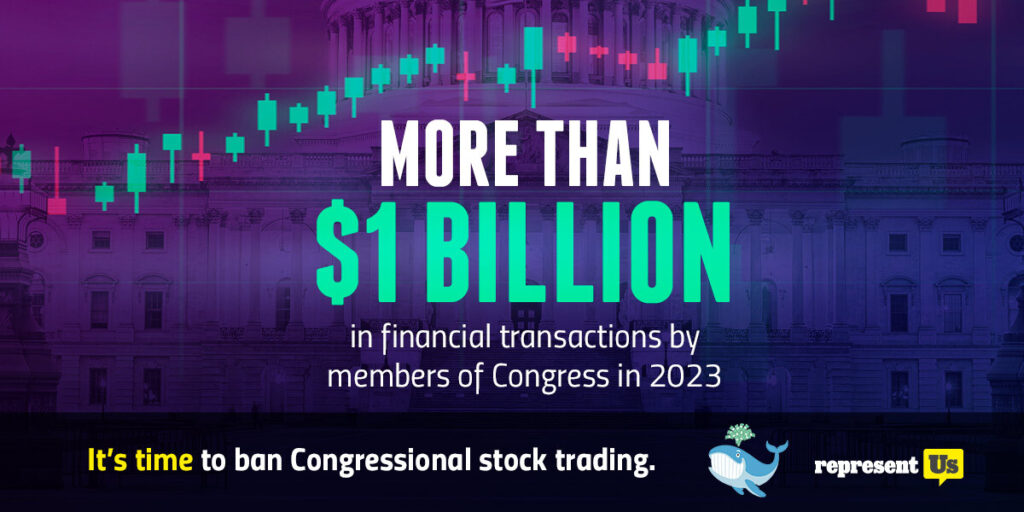
We don’t let referees bet on games they’re officiating, and it’s easy to see why. If they have a financial stake in the outcome, there’s no way we can trust them to make the right calls. The trust we place in our elected officials is even more important than the trust we place in referees. So why do we let our representatives bet on the companies they’re supposed to be regulating?
Members of Congress have influence over countless policies that move the market and they are uniquely positioned to know insider information. Yet members of Congress and their immediate family are legally allowed to buy and sell individual stocks.
Congress simply gets to play by a different set of rules.
Former U.S. Senator Richard Burr dumped up to $1.7 million of stock from his personal portfolio just days before the market plunged due to the Covid-19 pandemic. The problem? Senator Burr was, at the same time, receiving closed-door briefings on the federal government’s Coronavirus preparedness.
In early 2023 the Securities and Exchange Commission ended its investigation into Senator Burr. He was never charged with a crime.
Americans from across the political spectrum agree that Congress should represent people, not their portfolios. Recent polling found that 86% of Americans support a ban on stock trading for members of Congress, including 88% of Democrats and 87% of Republicans.
Support for a ban on congressional stock trading is as bipartisan as it gets. So why is Congress so slow to act on such a common-sense issue? It’s because, in many ways, corruption is legal in America and Congress doesn’t really care what most of us have to say.
To be fair, members of Congress (from both sides of the aisle) have introduced bills or expressed their support for a stock trade ban. But neither former Democratic Speaker of the House Nancy Pelosi nor former Republican Speaker Kevin McCarthy allowed such a bill to be voted on in Congress, despite pledging to do so. And current Speaker Mike Johnson has yet to bring such a vote to the House floor.
Elected leaders from both parties financially benefit from playing the stock market, and a 2023 report from Unusual Whales found a nearly even split between Republican and Democratic members of Congress who outperformed the market.
🚨BREAKING🚨
— unusual_whales (@unusual_whales) January 2, 2024
I have just released the full report on politicians trading in 2023.
Like every year since 2020, US politicians beat the market.
And many in Congress made unusually timed trades resulting in huge gains.
Here are the top performers of 2023. pic.twitter.com/ykf9VICsBw
While insider trading is technically illegal, many observers say the laws we currently have on the books are not enough to stop it from happening. The Stop Trading on Congressional Knowledge Act (STOCK Act), which took effect in 2013, requires members of Congress to publicly disclose their stock trades (within 30-45 days). However, the law’s weak enforcement mechanisms make prosecution for insider trading difficult. And enforcement of the law is so lax that a recent report found as many as 78 members of Congress have violated the law—a transgression that only earns them a $200 fine if it’s enforced at all. It’s clear that more must be done to bolster Congressional ethics standards and increase public trust.
RepresentUs is leading the effort to ban Congressional stock trading once and for all. We’re mobilizing thousands of Americans to contact their representatives in support of the ETHICS Act, a bipartisan bill that prohibits members of Congress and their immediate families from owning or trading individual stocks, securities, commodities, or futures.
Momentum is growing across the country to end the corrupt practice of Congressional stock trading. We’re fighting to make Congress part of the solution, not the source of the problem. Will you join us?
